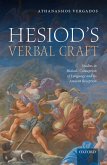Flattery in Seneca the Younger explores the discourse of flattery in Seneca's philosophical texts, and analyses the extent to which Seneca developed a theory of adulation. Martina Russo maps a phenomenology of flattery, tracing its external manifestations in Senecan philosophy. The personal practice of flattery displayed in the Ad Polybium and in De clementia along with the 'distant' exempla of flattery represented by Seneca, and with the theorization of adulation, indicates the range and the complexity of strategic flattery during the Julio-Claudian dynasty. Furthermore, it is argued that Seneca emerges not only as a practitioner of flattery but also as a theorist of it. While many writers tarnished their reputation by giving in to flattery, Seneca was among the few who not only accepted flattery but also advocated it as an essential tool in his own times. Nevertheless, in Seneca's philosophical prose, a constant tension emerges: whereas flattery is 'politically' acceptable as an instrument to cope with the absolute power embraced by the princeps, the sapiens (wise) and the proficiens (would-be wise) should be careful because flattery can seriously compromise their path to wisdom. By analysing the theory and practice of flattery, Russo discusses how passages permeated with the most blatant flattery can be read on a new level, by viewing Seneca's philosophical prose as an extended exercise in symbolic projection and figured speech. It becomes possible to disclose traces of political criticism behind the fa?ade of the most flagrant flattery.
Dieser Download kann aus rechtlichen Gründen nur mit Rechnungsadresse in A, B, BG, CY, CZ, D, DK, EW, E, FIN, F, GR, HR, H, IRL, I, LT, L, LR, M, NL, PL, P, R, S, SLO, SK ausgeliefert werden.









